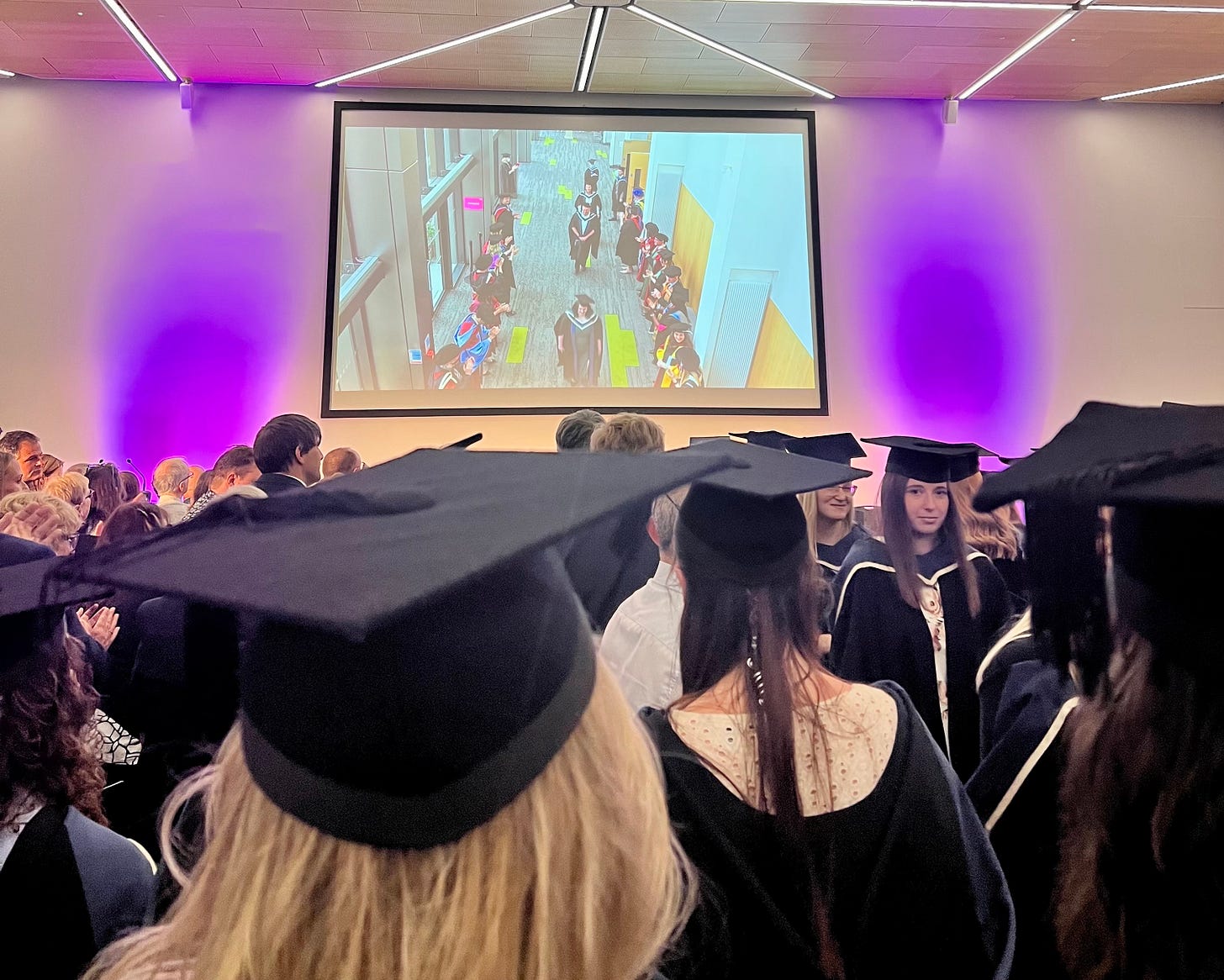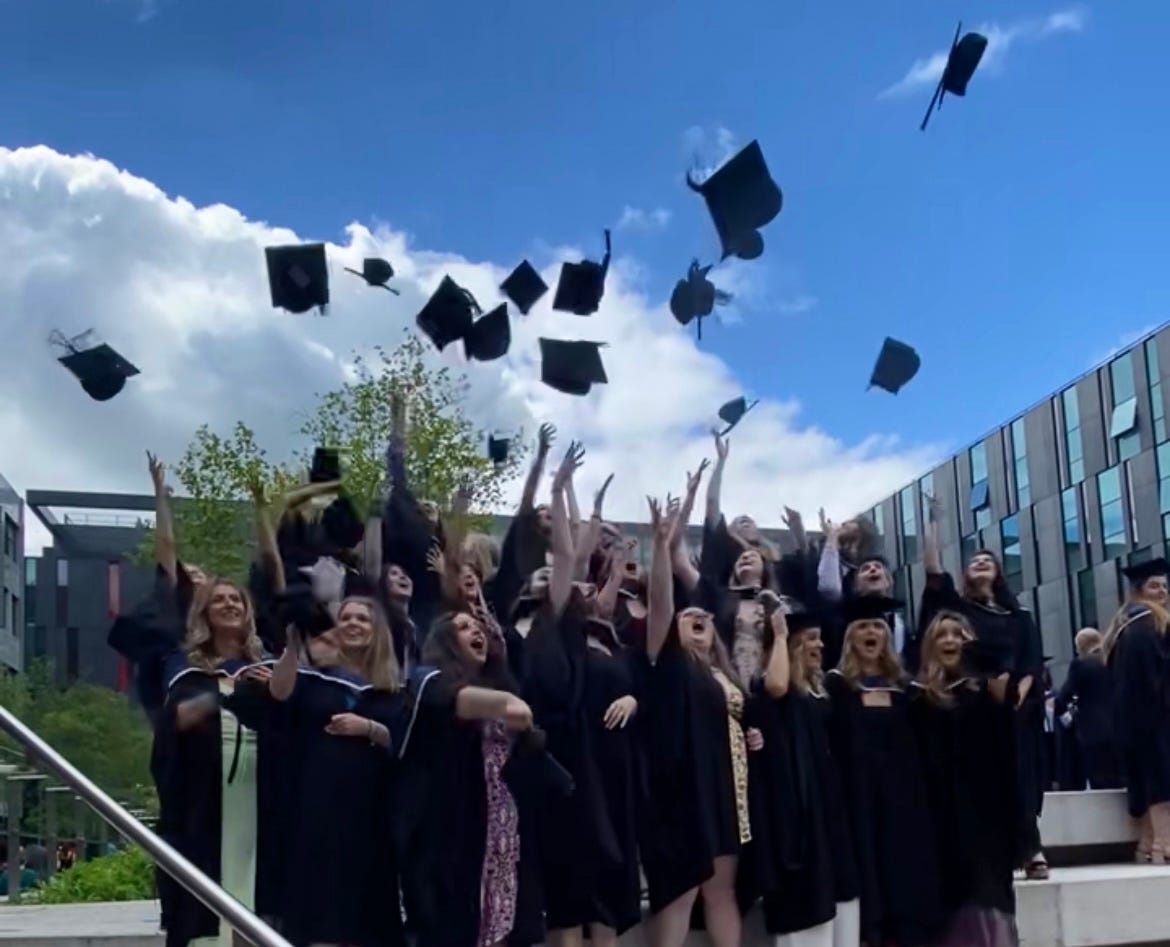'Is there a time span on the word "graduate"?' – the reality of navigating life as a university graduate after a global pandemic
Life can be hard as a university graduate but for students of the Covid-19 pandemic, it's been an entirely new experience
Life as a university graduate has always been a challenging experience for students. However in recent years, with the COVID-19 pandemic and its residual effects, the current cost of living crisis and the difficulties young people have trying to move out, it’s harder than ever to find your feet after finishing university.
Issues arose both prior to finding a job and also, for some graduates, when they thought they had secured a job – they discovered that the pandemic caused considerable disruption.
A 2020 survey by Prospects looked into the effects COVID-19 had on graduate recruitment. 1,202 final-year university students responded to the survey and it was revealed that ‘26.1% lost their work placement/internship, 29.2% lost their job and 28.2% had their job offer deferred or cancelled.’
The survey also revealed that 64.4% of final year students in 2020 felt ‘negative about their job prospects’ which signalled the effect the pandemic had on their outlook. The main reason for this was the fear of fewer job vacancies in their field as 78.5% of respondents expressed this was the main concern they had for their career prospects.
‘It doesn’t seem real that I graduated last month.’
Georgia Casling, a 2021 graduate from Oxford Brookes University, expressed her concerns about fewer job vacancies, particularly a fear of the graduate status expiring. ‘How long do you keep applying to graduate jobs for? […] Is there now a time span on the word “graduate?”’
‘You're fresh out - you're kind of coming into the real world and although you do have that experience at university, it is just a bit of a shock.’
Caitlin Lyons, who started at Queen’s University Belfast in 2019, was part of the cohort who were ‘seriously affected by the pandemic and its repercussions.’ She explained that, because she didn’t have a full year at university before the pandemic hit, ‘it doesn’t seem real that I graduated last month.’
The increase in virtual connections throughout the pandemic became an additional factor for graduates to consider upon finishing their final year. The Prospects survey revealed that 59.8% of respondents were concerned about how to approach virtual recruitment, such as video interviews and online assessment centres.
S is a student at the University of Kent and they explained the disruption that COVID-19 had on their student life as well as their graduate experience.
‘I lost one and half years of university to COVID. Lectures were online. Strikes happened at the same time so I lost a lot of learning hours and not much compensated back. So I would say my first year was kind of the only year where I had a university experience’
Whilst the university experience itself seemed to suffer for a lot of university students, the pressure of post-university (for some) was more intense than ever before.
S explained that ‘close to graduating I feel there is a pressure to find a job. I really wanted to take a year off, university was hard. But there’s this underlying pressure that if you’re unemployed after uni, it’s bad.’
Brian Johnson, Managing Director of Forward Role, a marketing, digital, and technology recruitment agency, explained that the graduates he worked with pre-pandemic generally ‘had an expectation that roles delivered (or should deliver) a mix of opportunity - reward, recognition, growth and a clear path of promotion.’
He further explained that the graduates he worked alongside after the height of the pandemic have been ‘self-sufficient, hardworking and keen to succeed.’
He said that this was due to the acceptance that the market has been tough so they ‘are much more on the front foot and keen to prove they are capable of working hard.’
The pandemic has given students time to think about their future
Georgia Casling explained that, despite the pandemic affecting her plans, ‘it kind of benefited me in a way to actually take a moment and think before diving into the next thing, which I can do quite easily.’
Being forced to take time to think and consider future plans, rather than succumb to the pressure of finding a job, was something Georgia found was a silver lining to the pandemic.
The Prospects survey found that 18.3% of graduates were feeling positive about their future career, with many respondents sharing the same feelings as Georgia. Many often mentioned that ‘I can spend more time finding job placements in line with the career I want to go down.’
Having a support system and finding people who were undergoing the same experience was something Georgia also emphasised was important.
‘I’m part of this Facebook group “gals who graduate” and I’ve seen posts on there as well. Knowing that other people had the same emotions and the same feelings, I kind of saw a post and I thought, “I'm with you there. I know that feeling. Don't worry. We're not alone.”’
Brian Johnson emphasised the importance of graduates taking their time when considering their career prospects, ‘everyone seems in a hurry to get promoted when time spent in a role, gaining experience, gaining personal achievements, is vital.’
‘Attitude is everything! The right traits and characteristics are far more important than education. Being open and sharing that you are keen to do a role, learn a trade/skill and show commitment (over a period of time) to a new prospective employer is very important.’
Anna Emerson Robinson started at Birmingham University in 2019 and she explained that, after graduating, she found the transition ‘to living back at home quite hard after becoming so independent.’
She said it became intensified because, when trying to leave her parents’ house, ‘finding somewhere to rent is a nightmare.’
Although the decision to move back home can be difficult for a lot of graduates, Georgia Casling explained that students shouldn’t be afraid to move home after they graduate.
‘Don't be afraid of it. It's not like you're going to step back. I think that's kind of what I thought moving back home, I thought I'd kind of be stepping back - but it's not.’
To prepare for graduation and to navigate the real world, S explained that graduates should look to their universities for help. ‘Look at what your university offers you. I think we’re so used to being told what’s available that people miss out on good services.’
They expressed that their university’s career service was ‘extremely helpful’ and recommends other graduates utilise similar services to help understand what options are available ‘during that “limbo” phase of graduation.’





